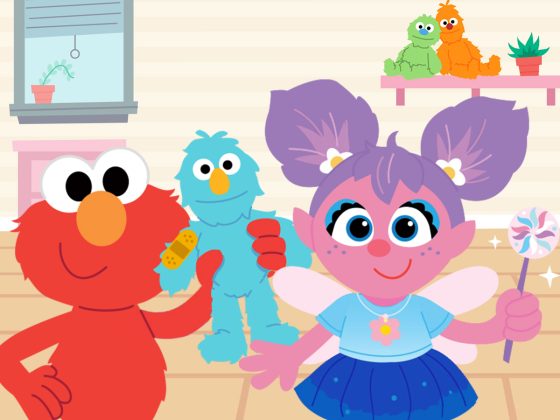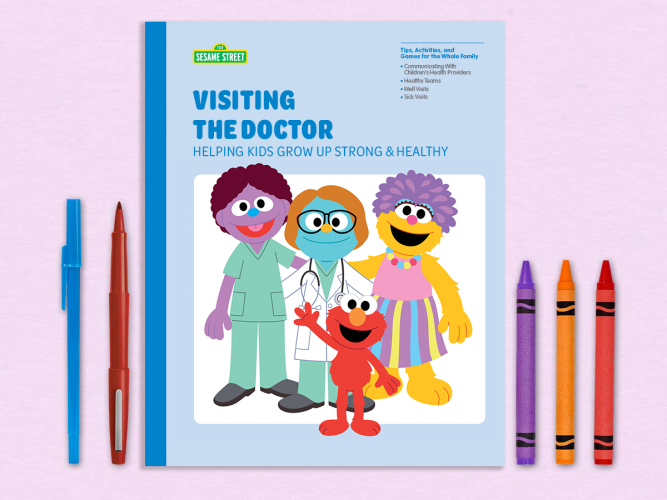
Elmo and Abby’s Check-up Play Date
Pretend play can help children “rehearse” situations that may frighten them.
SAFETY NOTE: Remind children that using doctor’s tools like the ones in the game is for grown-ups only. Using tools can be great on dolls, toys, and screens—not on ourselves or our friends!
In this game, Elmo and Abby pretend that they’re doctors! Make-believe play builds a variety of helpful skills. Children can “act out” familiar scenes and work through their emotions. As children pretend to be the doctor and say things out loud, they process their thoughts, feelings, and fears. When they’re playing the doctor, children feel more in control and less nervous about the unknown. Role-playing also helps them see things from another point of view—they get to try out how it feels to be the doctor giving care and attention. They can practice empathy, caretaking, creativity, and flexibility.
As children play, they will:
- Recognize and identify familiar tools from the doctor’s office
- Play and learn about unfamiliar doctors’ tools
- Pretend and practice things that take place at the doctor’s office (taking blood pressure, listening to a heartbeat, giving a shot, looking in eyes, ears, and throat, and so on)
- Calm and comfort the Muppet in need of care
- Celebrate by giving a sticker reward at the end!
Later, you can keep the learning going through questions and conversation. By talking about what they know, you’re helping children view themselves as an important part of their own healthy team. You might ask:
- Do you remember your doctor’s name? (if children have a regular doctor)
- Which of these doctors’ tools have you seen before? Which ones were new to you?
- How does each tool help the doctor or nurse check your body?
- What can you do to help doctors and nurses take good care of you? (How would you help them see into your throat? How could you sit when they give you a shot?)
- What could we do together to help you feel calm at the doctor?
- What would you like to do after our visit to the doctor?
- How would you like to celebrate doing such a good job at your check-up?
You can also practice different ways children can calm themselves down at the doctor, such as belly breathing, squeezing a comfort item, holding your hand, or thinking about something else. Children might be peacefully distracted by games like “I Spy,” drawing in a notebook, or singing songs while they wait.
Special thanks to the American Academy of Pediatrics.

Visiting the Doctor: Helping Kids Grow Up Strong & Healthy
Preparation and communication help you get the best care for your child at every medical visit.

Connecting & Communicating
Communication and connection with families is key to building a strong, effective healthy team.

Communicating at Doctor’s Visits
Good communication leads to good care for your child.

Rosita’s Favorite
Regular check-ups can be a fun and informative experience for the whole healthy team, kids included!

My Whole Healthy Life: Meet Reignen
A video about the different ways a Native American child and his family stay healthy.

My Whole Healthy Life: Meet Wa.Sta.Tse
A video about the different ways a Native American child and her family stay healthy.
